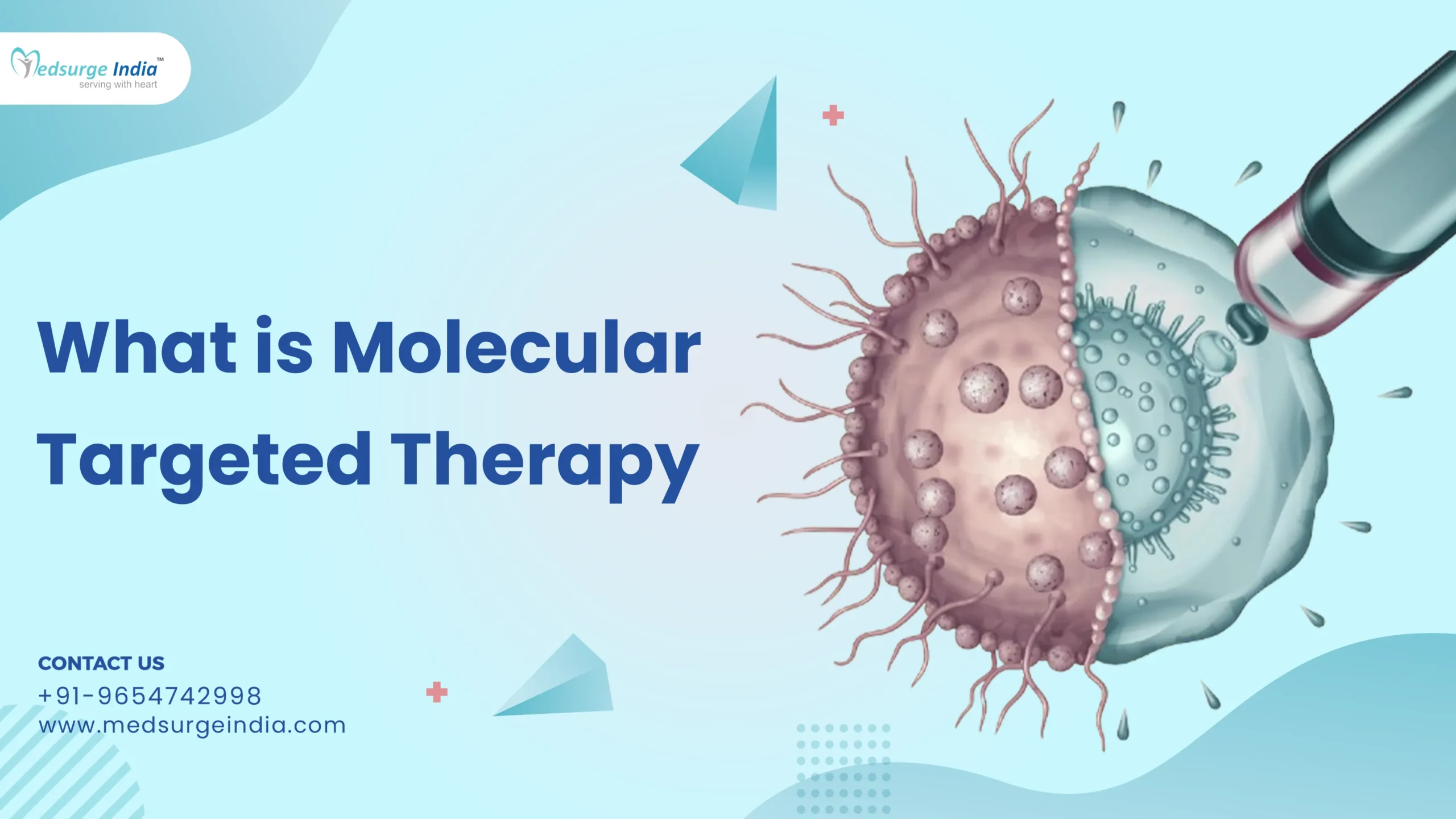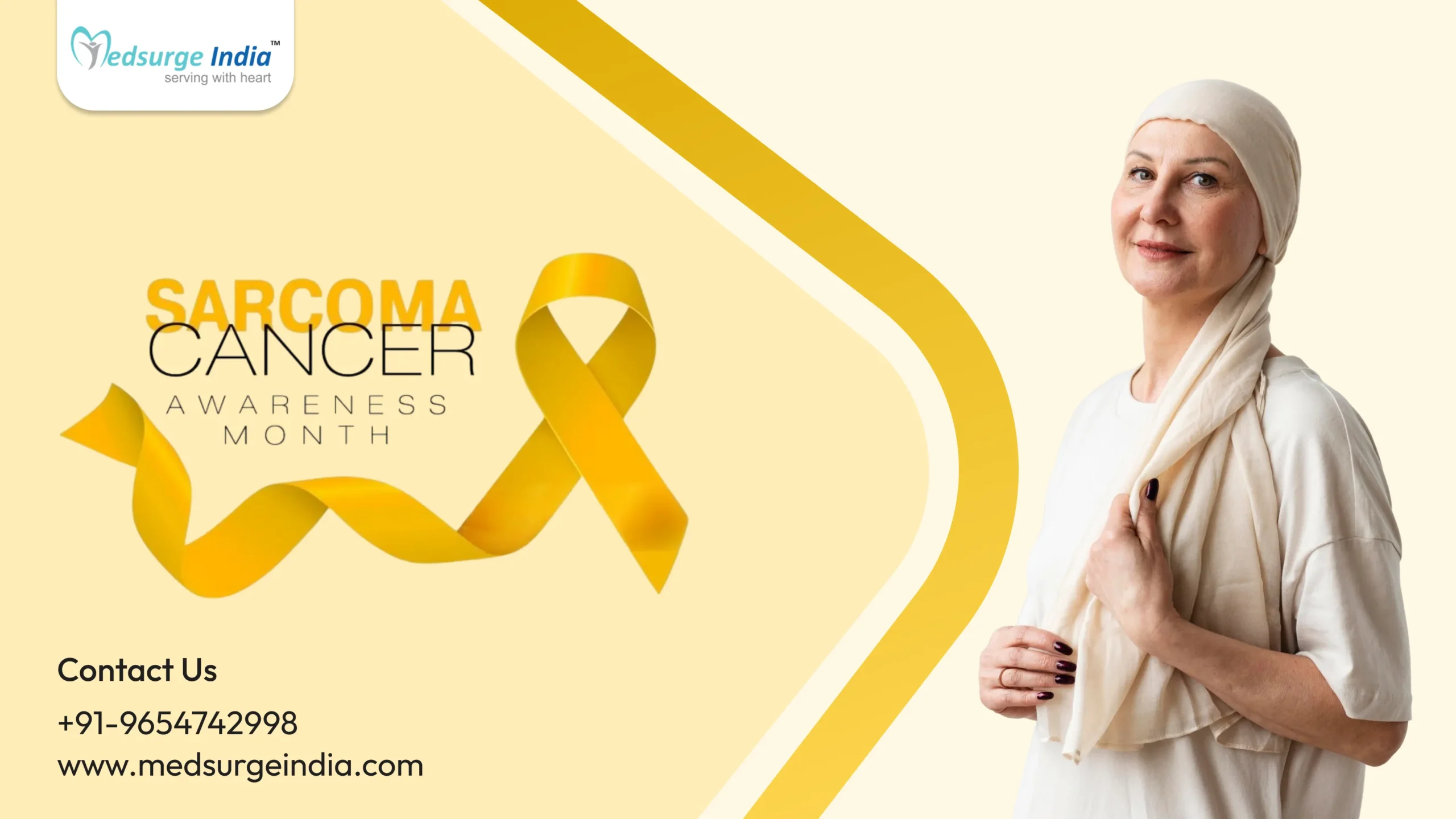
What is Molecular Targeted Therapy
Molecular Targeted Therapy represents a personalized approach to medical treatment, specifically tailored to address individual cancer cases by disrupting distinct molecular irregularities that drive the progression of cancer.
When we look into conventional chemotherapy, it functions by eliminating rapidly dividing cells, regardless of whether they are healthy or malignant. In contrast, a targeted therapy, which is a form of precision medicine, operates differently. It aims to inhibit or reduce the proliferation and dissemination of cancer.
This mechanism occurs at the cellular level. Cancer cells rely on particular molecules, typically in the form of proteins, for their survival, proliferation, and metastasis. These molecules are generally produced by the genes associated with cancer, as well as by the cells themselves. Targeted therapies are specifically developed to disrupt or focus on these molecules or the oncogenic genes responsible for their production.
Here in this blog, we will aim to provide an overview on molecular targeted therapies currently employed in oncology, emphasizing the core principles of these therapies, their mechanisms of action in combating cancer, and their respective benefits and drawbacks.
What Is Molecular Targeted Therapy?
Molecular targeted therapies represent an approach in cancer treatment, specifically designed to interact with particular molecules to inhibit tumor growth, progression, and metastasis. Numerous therapies of this kind have received approval from the Food and Drug Administration (FDA) and have shown significant clinical efficacy across various cancer types, including breast, leukemia, colorectal, lung, and ovarian cancers.
Key Principles Of Molecular Targeted Therapy
Mechanism of Action
- Targets specific molecular pathways involved in tumor growth and survival
- Interferes with specific molecular targets that drive cancer development
- More selective than traditional chemotherapy
- Usually cytostatic (stops cell growth) rather than cytotoxic (kills cells)
Major Types of Targets
- Signal Transduction Inhibitors are used to block signals that tell cells to divide example, EGFR inhibitors, and BRAF inhibitors.
- Growth Factor Inhibitors help in preventing growth factors from binding to receptors. It targets proteins like VEGF and HER2.
- Apoptosis Inducers triggers programmed cell death in cancer cells. It targets proteins like BCL-2.
- Cell Cycle Inhibitors help block specific phases of the cell division cycle. Target CDK proteins.
Advantages of Molecular Targeted Therapy in Cancer Treatment
The targeted therapies stands out in this aspect because it is very selective in its mechanism of action, aggressively targeting cancer cells in a very precise manner sparing the rest of the healthy cells hence; thus, associated with fewer side effects as compared to traditional chemotherapy.
These treatments are by their nature individualistic, which is chosen by the distinct molecular characteristics of the tumor of a patient, resulting in higher response rates. Moreover, targeted therapy products are usually in solid dosage form, they have fewer side effects thus patient has better quality of life less frequent hospital attendance during the course of treatment.
Also Read:- Chemotherapy in India
Challenges and Limitations
The primary challenge and limitation of the molecular targeted therapies is related to the emergence of drug resistance. Cancer cells are capable of adapting and finding another way, or even developing other mutations that reduce the effectiveness of the initially effective treatment in the long term. This sort of adaptation is best checked frequently and usually gives rise to combination treatments.
Patient selection and side effects pose two other large barriers. Molecular testing for this test is still expensive, and its availability remains limited across the globe. Moreover, not all patients create target candidates that can be treated with existing therapies. If treatment is possible, some patients may present peculiar side effects such as skin reactions, cardiovascular disturbances, gastrointestinal upset etc.
Clinical Applications
Common Cancer Types Treated
- Breast cancer (HER2-targeted therapy)
- Lung cancer (EGFR, ALK inhibitors)
- Melanoma (BRAF inhibitors)
- Leukemia (BCR-ABL inhibitors)
- Colorectal cancer (VEGF inhibitors)
Treatment Strategies
- Monotherapy
- Combination with other targeted agents
- Integration with standard therapies
- Sequential therapy
Future Directions For Molecular Targeted Therapy
From the current understanding of the molecular targeted therapy for cancer, the future will involve more complex strategies. Scientists are still in research to discover new molecular targets and to design improved forms of drugs to overcome the resistance. This has gone hand in hand with attempts to develop better drug delivery systems that would improve the impact of the drugs with less harm realized.
The research field is also growing further to key areas related to biomarker identification and resistance profiles. The evolving of tumors and attempts to form resistance are areas where scientists are continuing to improve combination strategies. Furthermore, there is an increasing focus on using biomarkers to predict patients’ responses to particular targeted agents more effectively, thus progressing towards the concept of individualized cancer therapy.






